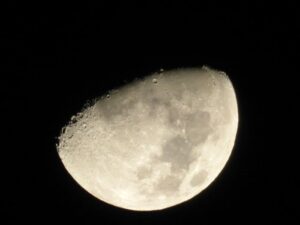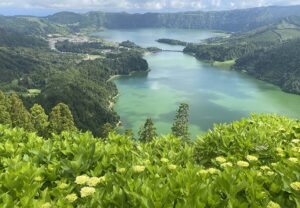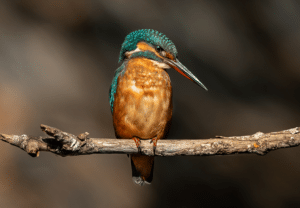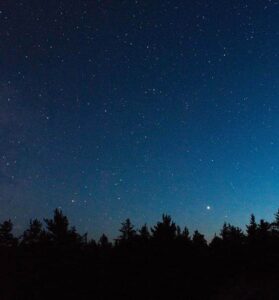
By Margaret Brown
Now effectively bolted and barred from the outside world by courtesy of a young Portuguese- South African handyman and his father and, having conformed to the basic instructions required for membership of the Safe Residence Programme, sometimes I feel like a prisoner in my own home.
While an emergency telephone number goes direct to any one of three guardian angels from the Guarda Nacional Republicana (GNR), were I to be incapacitated no one would be able to gain entry without smashing a window. In the past, having lived in happy solitude with only country sounds for company, it has never seemed necessary to lock up at night. How times have changed …
In the old farmstead where we had lived for 13 years and now, in our small home alongside, the timbers and stonework are rarely silent. Creaks, groans and occasional sharp snapping sounds at night indicate that both buildings have a life of their own, perhaps enhanced by the shifting tectonic plates far below.
Visiting nocturnal creatures from the small hills and narrow valleys behind the house knock plant pots about, root in the wood store and from time to time the heavy mob turns up, their noises demanding investigation. But by the time Fort Knox has been opened up, all is quiet again.
Hungry wild boars, which are victims of an ever-shrinking wilderness, come looking for food, their environment slowly being eroded by the human race. A near neighbour further up the hill had a family of these determined squatters living among a stand of cork oaks just below his house. They demolished a wall, rooted up plants and looked in ground floor windows at night.
Today, with the sun hot on my back and not a cloud to be seen, at the top of our land I saw my first snake of the season sunning itself on a dry stone wall. Above, a buzzard was circling on warm up-currents rising from a hill opposite while swifts and swallows scythed the high blue arch for flies, no doubt aware that a hunter well able to take a bird on the wing shared their space.
A kestrel streaked by looking for something small and hairy to eat; quail hidden in the rampantly green paddocks below the house called for a mate. All these birds are preparing to breed a new generation in the annual battle to survive. At times like this, there is a need to share such passing beauty before the summer heat turns everything brown.
Walking the boundary of our plot, which had been hacked from dense cistus many years ago, what remains of a small stand of eucalyptus has at last been denuded of most of its bark by recent gales and rain. Whereas mature trees, which failed to shed their tight corsets for several seasons, had tears of gum oozing from wounds and cracks, the bark of younger ones was hanging down and easily prized off to reveal colonies of small beetles hibernating.
The older trees had galls as well as symptoms of the eucalyptus long-horned borer, an insect endemic in Australia and now found in Portugal and many other places. This small pest is recognised by its very long antennae and smartly patterned long slim shiny beige and black wing covers, seen occasionally here, but a plague Down Under.
The oil impregnated bark is ideal for lighting fires but take care when peeling it off because isolated wood wasps still fuzzy with sleep may wake up enough to deliver a nasty sting. In the same unkempt area, shoots of dark green wild asparagus (Asparagus officinalis) are now just right for picking and make a delicious addition to green salad when gathered very young. Changing into pale bushes of barbed wire when fully grown, the flowering stage gives off a distinctive and pleasant perfume, the red berries being highly poisonous to humans.
Another Easter has just passed and those of us who chose to fast or give up something pleasurable can indulge once more. However, the 40 days of Lent ending on Holy Saturday mean so much more than that. It is a time for an honest personal appraisal of one’s life style and faith, hopefully culminating in a general improvement. Ideally this means service for others rather than self-service and a degree of humility at all times.
In Luz Church on Maundy Thursday, in recognition of the humility of Christ who washed his disciples’ feet, members of the Congregation knelt likewise and in pairs performed the same mutual service, a tender and illuminating moment of devotion.
Next day saw a full Church celebrating the Crucifixion, with readings from the Gospels interspersed by technically faultless singing by the choir of four pieces by Karl Jenkins. Conducted by John Dixon and accompanied by Marion Creber, together they produced a rich and beautiful sound from this challenging set of compositions.
Easter Day, although grey and damp, was all joy within Luz Church, a weak sun managing to shine down briefly as we left the building at the start of a new Christian year.
Meanwhile, although the countryside is bedecked in an exuberance of wild flowers, the mating game at full throttle, and new lambs huddled up close to their mothers against incessant downpours, spring remains just a rumour. Pity the visitors who have come to escape Britain’s awful weather; their resigned attitude epitomised by a remark heard in passing, “Well, at least it isn’t quite as cold as the UK”.
||features@algarveresident.com
Margaret Brown is one of the Algarve Resident’s longest standing contributors and has lived in the Algarve for more than 20 years.


















